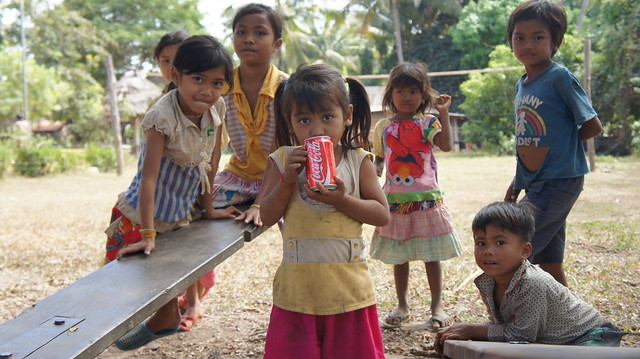“Globalization” by Frederic Poirot, on Flickr
What is globalization?
The effects of globalization influence our everyday life. This is already a fact, meaning the concept is nowadays not used the way it was ten or fifteen years ago. It has fully integrated into our lives. But how well do we know or understand the concept of globalization? Would you be able to define it? This article is our small contribution for a better understanding of this concept.
According to Wikipedia (itself a product of globalization), globalization is “the process of international integration arising from the interchange of world views, products, ideas, and other aspects of culture” referring to “processes that increase world-wide exchanges of national and cultural resources.”
Along the lines of Wikipedia, we find authors like Guillermo de la Dehesa, who describes globalization, in his book Winners and losers of globalization, as a dynamic process of growing freedom and integration of the world’s labor, goods, service, technical and capital markets. Nevertheless, he adds that it is not a new process. It has been gradually developing since 1950 and will take many years to reach completion, if politics allow it.
On the other hand, renowned sociologist Manuel Castells has made a substantial contribution to the definition of globalization, in considering the world (or economy) as an autonomously functioning unit at the global level. He defines a global economy as an economy with the ability of functioning as a unit in real time or in a stipulated period of time on a planetary scale. More precisely, he defines the global economy as an economy whose fundamental components are able to work as a planet-wide unit at institutional, organizational and technical level in real time or in a given period of time.
Economist Joan Tugores contributes to the definition of globalization through his addition of the aspect of “homogenization”, a process under which countries lose their differential characteristics.
Some consider globalization as a beneficial process – the key to future global economic development – which is both inevitable and irreversible. Others, however, view it with hostility, or even fear, believing that it increases inequality within and between nations, threatens employment and living standards and thwarts social progress. Among the experts that regard globalization with caution we also find Anthony Giddens. He focuses on family, stating that “globalization generates risks for all societies, though the biggest risk is that emerging or backward countries become ensnared in fundamentalism, refusing to liberalize and democratize their institutions – starting with their own families, in order to integrate into a dynamic global society with plethora of opportunities.
Understanding globalization, in eleven videos
Below you will find a collection of six videos introducing curious and interesting facts to deepen the understanding of th phenomenon of globalization. The original video of this series, the first one on the list, was created by Karl Fisch and modified by Scott McLeod. Originally the video was conceived as a PowerPoint presentation for a meeting of professors that took place at the Arapahoe Institute in Centennial, Colorado, United States.
According to Karl and Scott, the first presentation went viral on the internet in February 2007. By June 2007 the video had surpassed five million views on YouTube. Based on this video, new versions were released periodically, on a two year base. You can find these videos below.
Original video by Karl Fisch: Did You Know?
Version 2 Did You Know?
Version 3 Did You Know?
Version 4 Did You Know?
Version 5 Did You Know? (Iowa version)
Version 6 Did You Know?
The number of videos on globalization on the net is enormous. Below, we have made a selection of visual resources which might help to broaden the understanding of the concept and phenomenon of globalization.
Noam Chomsky on globalization
Xavier Sala-i-Martin on globalization [Spanish]
Globalization according to Story of Stuff
WissensWerte Series on globalization
Gapminder on globalization
Translation of the original article in Spanish by Elena Pérez
This is a nonprofit explanation







